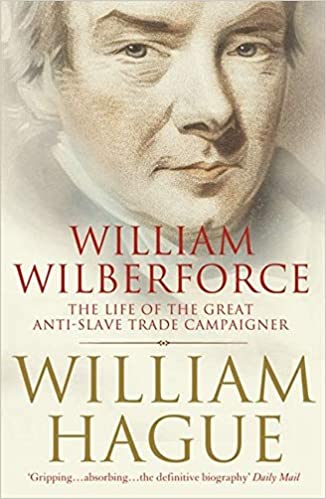William Wilberforce: the life of the great anti-slave trade campaigner
It’s a tribute to the quality of William Hague’s biography of the great anti-slavery campaigner William Wilberforce that, despite coming out back in 2008, it still feels fresh and relevant in the light of recent events. Hague’s book is a lengthy but highly readable study of someone who does not easily fit modern political labels, being a fervent opponent of slavery abroad and an advocate of peace with France, but on the domestic front more often lining up with conservative opinion.

The story of how Wilberforce co-opted the perspectives of his opponents in order to secure the abolition of the slave trade is one that has relevance to contemporary political controversies. Wilberforce was motivated to oppose slavery by basic humanity, yet to secure the votes in Parliament to oppose the slave trade he found success in making the issue one about how to strengthen Britain’s military position. Co-opting the values of others continues to be a powerful campaigning strategy, as shown in this century by campaigners to legalise same-sex marriage.
Hauge makes full use of his own experience as a frontline politician, including as leader of the Conservative Party, in explaining and bringing to life the Parliamentary struggles that Wilberforce went through to see Parliament first vote to abolish the slave trade and then slavery itself. Along the way he includes the great Yorkshire election of 1807, which saw around £15 million pounds in today’s prices being spent by three candidates in the one constituency.
The book is a story told very much from the perspective of the politicians who argued over the issues for many decades. As Wilberforce was the dominant Parliamentary force on the issue over many years, this focus works well for a biography. But it also means the horrors of slavery itself and the brave campaigning from ex-slaves such as Olaudah Equiano are very much lesser parts of the book.
The focus too is very strongly on Wilberforce as a politician, with relatively little about his private life and his family. But no one book can tell all the aspects of a story, and this one tells its prime story – the political life of one of Britain’s most successful campaigning Parliamentarians – extremely well.
You can buy William Wilberforce: the life of the great anti-slave trade campaigner by William Hague from Amazon, Waterstones and Bookshop.org.*
* Affiliate links.